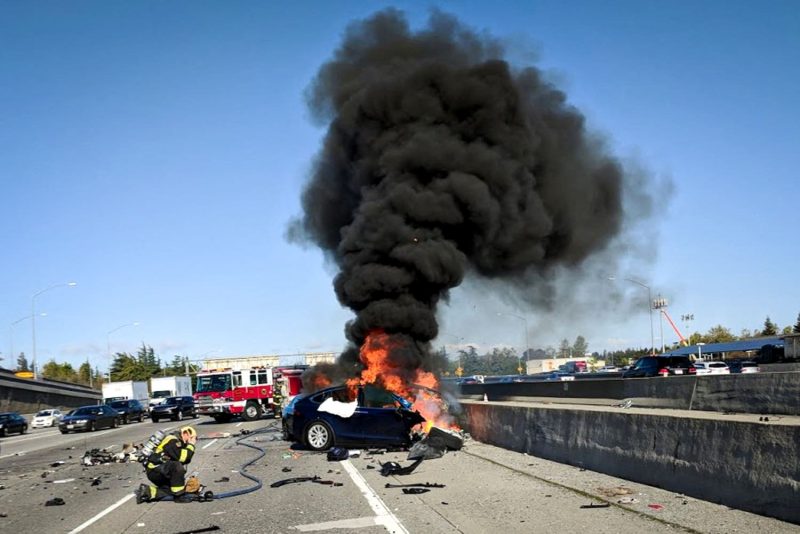In a recent development, Tesla has settled a lawsuit over an Autopilot crash that tragically resulted in the death of an Apple engineer. The incident, which occurred in 2018, has had far-reaching legal ramifications and implications for the future of autonomous driving technology.
The crash, which took place on a highway in Mountain View, California, involved a Tesla Model X that was operating in its semi-autonomous Autopilot mode. The vehicle collided with a concrete highway barrier, resulting in the death of the driver, an Apple engineer named Walter Huang. The incident sparked widespread debate and scrutiny over the safety of autonomous driving technology, particularly in cases where drivers may become overly reliant on the system’s capabilities.
Following the crash, Huang’s family filed a wrongful death lawsuit against Tesla, alleging that the company’s Autopilot system was defective and played a significant role in the accident. The lawsuit also claimed that Tesla had failed to provide adequate warnings about the system’s limitations and had engaged in deceptive marketing practices regarding the capabilities of Autopilot.
In the settlement reached between Tesla and Huang’s family, details of the agreement remain confidential. However, the resolution of the lawsuit represents a significant step in addressing the legal implications of accidents involving autonomous driving technology. It also underscores the complex and evolving nature of the legal landscape surrounding self-driving vehicles.
The incident has reignited discussions about the ethical and legal responsibilities of companies developing autonomous driving technology. As the capabilities of self-driving cars continue to advance, questions around liability, regulation, and safety standards will become increasingly important. The settlement in this case may set a precedent for how similar cases are handled in the future and could influence how companies approach the development and deployment of autonomous vehicles.
Overall, the settlement of the lawsuit stemming from the Autopilot crash that claimed the life of an Apple engineer underscores the need for continued diligence and oversight in the realm of autonomous driving technology. While self-driving vehicles hold immense promise for improving road safety and reducing accidents, it is essential that companies prioritize transparency, accountability, and ethical considerations in their pursuit of developing these technologies. The tragic incident serves as a sobering reminder of the stakes involved and the importance of upholding safety standards in the pursuit of innovation in the automotive industry.
